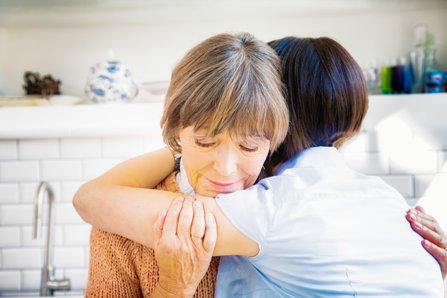Why the COVID-19 Pandemic Makes NOW the Perfect Time to Get Sober

It’s always tough when you’re addicted. Always. You have the cravings to deal with every day, and there needs to be enough money on hand to get the drugs or drinks you need to keep from going into withdrawal. There’s often housing, health and safety problems as well. Yes, it’s always tough. But in the middle of the COVID-19 pandemic, it’s far tougher.
I took a look at what some people were saying on online forums where addicted people talk to each other or ask for advice on how to get themselves off drugs. That’s where I’ve often found unvarnished and immediate honesty because every comment is anonymous.
So what are these people saying to each other about their current situations? These are actual statements from a well-known online forum.
- I’ve been on quarantine for a month and bored. I caved today and got me some [of their drug of choice]. Those 14 months were the longest I’ve been sober since June 2017.
- I’m scared of the effect smoking meth will have on my lungs. If I do get the virus, am I going to die?
- A month ago, my dealer warned his drug supply from Mexico was slowing down in a big way. So my drug use has slowed down. Oh happy day if I get to the end of my supply and say, “Well, I guess that’s over.” I’d be dancing in the streets!
- Cocaine is unavailable north of Chicago. I’ve heard some rumblings that traffickers are stocking up and that at some point there will be a huge influx of supply. I heard some addiction experts on the news who were concerned that when that happens, there may be a big increase in overdose deaths.
- There’s a lot of fake stuff being circulated so one needs to be extra cautious when making deals.
- Methamphetamine is becoming harder to get, more expensive and is poorer quality due to travel restrictions caused by COVID-19.
Therefore, the Best Time to Get Sober Is Right Now
Have you been trying to help a loved one get sober? Then you know that there’s never a good time to be addicted. But during this international health crisis, it’s time to pull out all the stops and try again.
If your loved one has refused your help in the past, there’s a good chance that they may be scared of using the drugs they crave every day. They could be a little more receptive to your offer of help right now.
The most successful type of rehab program is a residential rehab because in this environment, a person has support and supervision around the clock. Any residential rehab will also have medical staff on hand to monitor the health of every person in this program, which is important right now.
If a residential rehab is not available and if a person has a safe, stable place to live and support by friends and family, an intensive outpatient program is the next best choice. This is a program that requires a person to spend many hours at the rehabilitation facility, participating in the steps of the program.
The Importance of Life Skills
No matter what type of drug rehab is available, life skills training is essential. Every day they are addicted to drugs or alcohol, a person is rapidly losing their life and social skills. They learn to lie to cover up their use. They spend their rent money or Christmas present money on drugs or alcohol. They are long absent from home or abusive to their spouses or kids. They may steal, embezzle or sell valuables to be able to buy more drugs. Or, perhaps worst of all, they may sell drugs or inject them into someone who then overdoses and dies.
Their integrity takes a very big hit. Over time, they accumulate guilt over the harm they have done to themselves, their families and their communities.
Finally, they are buried under mountains of guilt. The only thing that makes life bearable each day is more of the same—more drugs or alcohol. Along with intense cravings, this is part of the vicious circle of addiction.

For a person to give themselves a chance at sobriety, it takes much more than just drying out from the drugs or alcohol. Each person must recover their self-respect. They must learn how to let go of the guilt. These are not easy tasks to do. But an effective rehab program will address these points.
Some drug rehabs teach their clients that they are not responsible for their addiction because they simply suffer from a brain disease. This lesson may even seem to provide a person with some relief. But the truth is that if a person does not recover their own personal integrity and accept real responsibility for the harm they have done, they may never find relief from that guilt, brain disease or no.
Why Guilt MUST Be Addressed
Why is it so important to get real, honest relief from guilt? If an addicted person doesn’t achieve this change, they are going to carry it with them forever. When they return home and try to get re-established in a sober life, that guilt is still with them. It will poison every relationship they try to renew. That recovering person may find it impossible to give themselves a real chance to enjoy a sober life. He or she could have a greater tendency to continue the destructive habits they developed while addicted.
But when the rehab program effectively helps a person address this guilt, there’s a better chance for true relief. The future can suddenly look brighter. This person now has a better chance of feeling worthy of a productive, enjoyable life and future.
Look into any rehab program you are considering. Have someone explain to you how a person overcomes their guilt on that rehab program. It should make sense that this method could be effective. This is a truly critical component of your loved one’s recovery, during the COVID-19 pandemic or any time.
Sources:
- Excerpts of drug user comments are from https://drugs-forum.com/
- https://www.courier-journal.com/story/news/crime/2020/06/08/coronavirus-pandemic-mexican-cartels-stockpile-drugs-money/5193971002/
- https://www.ncbi.nlm.nih.gov/pmc/articles/PMC4290678/
 ®
®